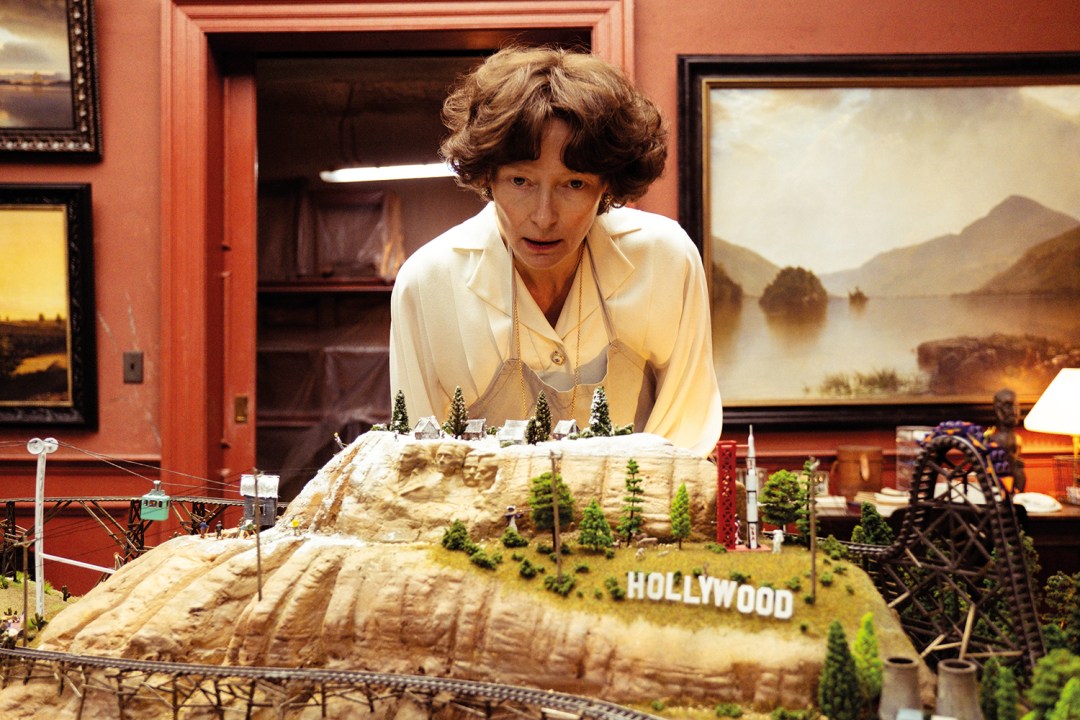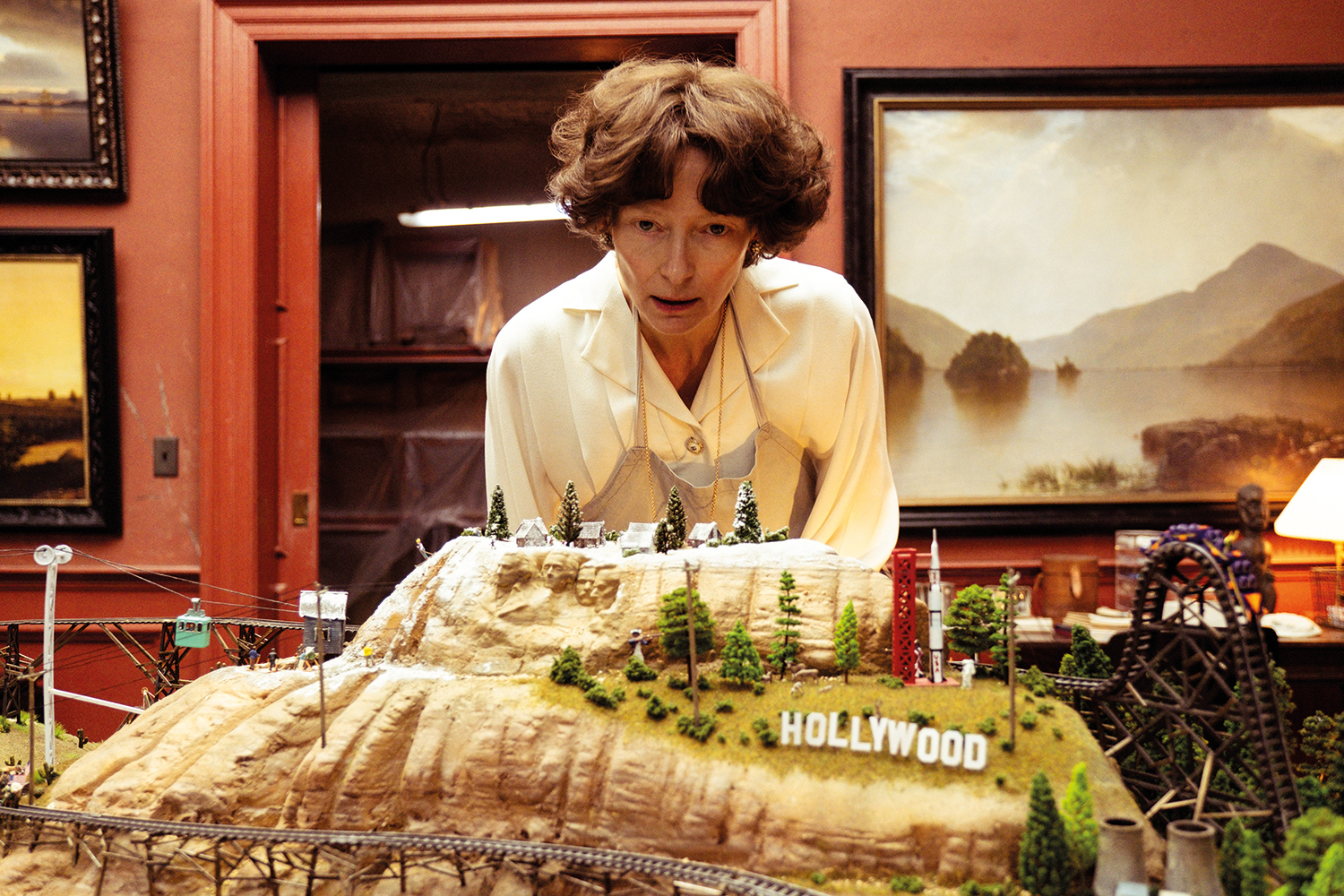
Joshua Oppenheimer’s The End is a ‘post-apocalyptic musical’ starring Tilda Swinton and Michael Shannon that is being sold as a ‘bold vision’. And as you know I’m all for bold visions – except perhaps ones that go on for two and a half hours (I genuinely feared The End would never end) and give the impression throughout of being like a premise in search of a story. The musical, however, does definitively answer one question: can Swinton and Shannon carry a tune? Spoiler: not really.
This is the first dramatic feature from Oppenheimer who is best known as the documentarian behind two stunning films about the 1960s Indonesian genocide (The Act of Killing, The Look of Silence). The End was inspired by Oppenheimer’s visit to a Russian oligarch’s immense survivalist bunker that set him wondering what life would look like if the Russian and his family were forced to retreat to it.
It’s set in just such a bunker two decades after some environmental catastrophe has made Earth virtually uninhabitable. The family have not been given names. They are ‘Mother’ (Swinton), ‘Father’ (Shannon) and ‘Son’ (George MacKay) and I am as wary of films that do this – remember Darren Aronofsky’s Mother!? – as I am of novels that say they are ‘experimental’, which generally means there is no plot to speak of. (What can I say? I like something to go somewhere.)
Mother, Father and Son live with ‘Friend’ (Bronagh Gallagher), ‘Butler’ (Tim McInnerny) and ‘Doctor’ (Lennie James, so wasted it’s upsetting) in luxurious circumstances. Their bunker, set within a vast salt mine, has a swimming pool and is exquisitely decorated, plus they are so wealthy they have Rembrandts and Renoirs. It is visually sumptuous. But if you are literal-minded it’s a torment. Where is their electricity from? Their food, their water, their cigarettes? How can they ensure the hygiene of their swimming pool? How have they not come down with Legionnaires’ disease? I suppose we are meant to go with it rather than fret about practicalities but Legionnaires’ is no joke.
They swim. They perform safety drills. Mother frets about the décor while constantly rearranging the paintings. Son is helping Father write his memoir. Father was an oil tycoon who is in some way responsible for the Earth’s devastation but he rewrites history to cast himself as the good guy. He was, he recounts, only in the energy business to send poor orphaned Nigerian girls to school. Mother is a ballerina who says she starred with the Bolshoi (but did she?). Son laps it all up as he has never known the outside world. But then along comes a girl (‘Girl’) played by Moses Ingram, who is found unconscious in the mine and brought into the family. She questions their narratives. Truths come tumbling out, but then, alas, they are immediately put away again.
I genuinely feared The End would never end
This is typical. Just as you’re expecting a confrontation or events to escalate – just as you are expecting drama – it all fizzles to nothing. Scenarios bubble up, then disappear – why the allusion to an ‘inappropriate’ relationship between Friend and Son?; why is the gayness of Butler momentarily bought front and centre? Meanwhile, the musical numbers – delivered atonally for the most part: Gallagher is the only one who has any kind of voice – are monotonously indistinct from one another. There is one dance scene, which is so comically bad that I only hope (and pray) that it
was intentional.
What are we meant to take away from it all? That we tell ourselves lies and live a life of denial in bunkers of our own making? I guess… An admirably ‘bold vision’, but it left me (‘Critic’) cold.







Comments